Just a Haole from Massachusetts — Going to Country Redux
a critical self-reflection
The Ugly Truth: Brave New World — North Shore 2021
He who dares not offend cannot be honest. — Thomas Paine
Betters have their betters. — Ancient Japanese proverb
Beat it, Haole! — Hawaiian proverb
Thus Spoke Jerry
On the recent essay “Country: Tower 25: Sunset Beach— The Paumalu Register (a work in progress)” (June 4, 2021) there was a mostly positive response. “Great piece!” “Well put... hard to stomach the North Shore of today.” “All true!” “I loved reading this from a love far away. I have vivid memories of back then when the current vibe was one of locals, haole & hui remembering the decades of the 60’s-70’s into early 80’s & how drastically things had changed from their 20~30 years of experiences. Time stops for no one. Live & cherish every moment because when the moment is gone, all you have is the memories & nostalgia.” Another reader (subscriber — Mahalos, Josh!) reflected:
Tourist trap indeed. I, just two or so months ago was driving from windward via Kahuku to surf. There was, by Velzyland a gaggle of teenage girls, obviously not from around here (beyond alabaster white skin) walking by the road against traffic, faces smashed into their smart phones. They missed all the beauty around them, anyways the outboard most one of this gaggle wandered into on coming traffic right in front of me. I was in total disbelief. I drive 30-35 over there. Maybe slower. Their waves aren’t stopping — waving hysterically. I just sit there, I could’ve honked but that’s too New York City, too pretentious. Eventually she looks up, giggles and catches up with her herd. Freakish primates indeed. She could’ve been flattened by a damn cement mixer or any number of tourists in rented race cars. Oh well. As far as Paumalu, its hallowed ground. Maybe all of Hawaii is, it certainly and they (Hawaiians) deserve the utmost respect and reverence. Would liked to have seen what Bruce Brown saw when he visited, or what uncle Chuck Andrus saw as a boy on trips to the north shore. Mahalo Nui for writing.
Dumb & Dumber — Kookshow on Kam Highway — J-Walking is illegal & stupid: This ain’t Disneyland.
Mostly rental cars packed with Lemmings. A daily, maddening, nauseating reality: bumper to bumper traffic and hordes of idiot jay-waking tourists (note: stupid smirks). What used to (and should only) be a 10 minute drive, now takes an hour. Disgraciado.
Mahalo, Josh (I mean Steve). The truth. In this case, the “truth is hard,” dangerous — deadly — even, and certainly controversial. Not everyone (among the 521 or so people who apparently read this piece as of today) approved however. My father, for example, thought it a bit “cynical” and perhaps “too strong,” in terms of tone. And a subscriber from Maine (a friend of Chappy’s no less) observed: “I find the contrast between a scathing diatribe about too many — and the wrong types of — people on the North Shore and [a reference] to God a bit contradictory . . . unpalatable.” He went on: “No doubt, I bet [the North Shore] was sooo much better 30 years ago, but everything changes . . . People are just people and they will travel to beautiful places like you did 30 years ago. Your disdainful tone invokes that of a native, but you aren’t a native . . . You’re just a haole from Massachusetts.”
Exhibit “A”: A Haole from Massachusetts in his yard — Huelo Hale
I appreciate the concern and candor. All criticism and advice, comments and reflections, are more than welcome here at Eternal Return — I encourage, indeed embrace such dialogue and intercourse. Let it fly! And allow me to clarify a few things. While the tone of the “diatribe” alluded to may be unsettling (“unpalatable”) and more than a little bit edgy, it reflects not only how I feel but how many if not most residents here feel regarding tourists and the demographic shift or transformation (i.e., gentrification) presently occurring in this fragile, vulnerable, rapidly and radically changing place. For example, one of the most vocal and angry critics is Chappy’s nephew Sean Briley, a person I respect. He’s born and raised Local; Kahuku alum; Pipe Master; Big Wave Rider (rode one of the biggest waves of all time in 1998); and he’s raising his family (third generation Chapmans — the future of surfing and our community). Sean’s seen the transformation; he knows what’s at stake — like most everyone else who has lived here for more than a few decades. I’ll note again that most of the comments on this piece I’ve received from readers (that are local — Hawaiians, Haoles alike) are not just positive and approving but also remark that what I describe is “true.” That’s important to me: truth.
I may be from New England originally but I’ve been here for over 33 years. Most of my life. And I may not be a “native,” but I’m a local. I can say that; I’m not ashamed: I earned it: paid my dues. Learned the lessons. Plenty. I’m certainly not and never was a “tourist.” I didn’t come here on vacation; to “visit” or stay in a hotel or vacation rental. I came to Oahu to go to school, work, and surf, which is exactly what I did and have been doing continuously since 1988. Just like thousands of other people who came here as a kid and lived, worked, bled, fought, dreamed, cried, laughed, rejoiced, suffered, and endured here for decades. Most people on the North Shore are rather like me; most of the “locals” came from somewhere else before they settled here. Call me a “transplant,” sure; but I’m also an integral part of this community. Went to school here, worked a bunch of different “grass roots” jobs (in a plant nursery; restaurant; health food store; construction; house painting; water delivery; and taught at both the University level and in the public schools for over 25 years); raised a family (my daughter is “native”: born & raised NS Girl); bought a house (which I’ve lived in and cared for 22 years); devoted my entire adult life to mastering surfing Oahu’s best waves. I am deeply, daily, and intimately connected with the natural environment: Mauka to Makai. I live and breathe Aloha. Perhaps most importantly, I have given back (that’s Hawaiian Style) to the community that gave so much to me by contributing to the enhancement of the lives and minds of thousands of students, mostly Hawaiians. That’s well established. It has been a privilege and pleasure, as important to me as any wave I caught. So, I am what’s called Kama’aina (local). My students often say: “Mister you may look Haole; but you’re not Haole.” That’s the highest compliment one can get from a 300 lb. Moke. Malo, Uso! Sa’o!
Haole is a relatively fluid term. In a manner of speaking I am Haole because I’m white. For a lot of people, it’s just that simple. Locals who are born and raised here, whose families have been here generations, and are white are called “Haole” and that’s stupid, if not racist. It’s also rather amusing, in that I know a lot of Pacific Islanders — Polynesians — from Samoa, Tonga, Aoetearoa (New Zealand), Rapa Nui (Easter Island), the Cook Islands (etc.) who are new to Hawaii in one way or another — because they just got here. Like yesterday. But no one would call them “Haole” even though they’re not from and are new here. They call me “Haole” and I laugh. I go: “Who’s da Haole?!” And they laugh. We’re laughing. I say: “I been here longer than you’ve been alive, cuz!” Get it? Shoots! Bumbye.
Tourist Traps Galore . . .
By contrast: Old Hawaii . . . Hana Hou!
HA means “breath” in Hawaiian. ‘OLE means “not” or “without.” Thus, a HAOLE is a “person without breath,” which, for an ancient traditional Hawaiian means: “foreigner” or “of foreign origin or introduction.”1 By that standard, properly speaking, not only is everyone (human) but literally everything (organic, animate: plants & animals) is, in a manner of speaking, “Haole,” in that everyone and everything came from somewhere else (foreign) to this remote volcanic archipelago, including the Polynesian Voyagers who (came from Tahiti, the Marquesas, and probably Samoa) discovered and settled these glorious islands some 1400 years ago.2 Traditional Hawaiians greeted one another by getting close to each other — face to face — and exchanging HA (breath): they blew into each other’s faces: exhale/inhale. They exchanged more than breath (HA), they shared MANA (spiritual power). When the first Europeans (e.g., Captain James Cook in 1778) stumbled upon the Hawaiians, the European sailors greeted the Hawaiians with outstretched hands — and the Hawaiians were like: “What’s with these Haoles?”3
The death of Captain Cook — Kealakekua Bay, Big Island 1779.
Hana No’eau
However as any local or Hawaiian (e.g., my students) will also tell you: Haole is an attitude or mindset more than skin color. To be Haole means to be kind of stupid, basically; like a Haole is simply oblivious. Haoles don’t understand; they don’t get it. Their timing is off along with just about everything. They don’t hear the music — can’t smell the coffee. Mix and abuse any metaphor you choose. They all apply. If you don’t know you’re Haole, you’re Haole basically. If you do, you’re a little (or a lot) less so. Haoles lack etiquette, protocol, privilege, or preference. Haoles don’t have an invitation to the party, as it were. No one knows them (no one wants to); and they don’t know anyone (or much of anything) either. So, with all due respect, the guy from Maine who complained (I understand) is a Haole. No question. Sorry. Me, not so much. I’m local. About as local as it gets in Sunset Beach, I guess — for a Haole, that is. Solomon Mamala and the Kalulus are the real locals in Paumalu — but 99% of the people here don’t know that . . . My daughter is born and raised. Etc. I’ve forgotten more about this place, it’s history, people, traditions, (etc.) than most will ever know. Haole is a state of mind and condition of heart.
That said, I just asked my “native” daughter (who’s 22): “What’s a Haole?” She responded deadpan: “You.” She added: “You, me, and everyone else here who’s not Hawaiian or Polynesian.” Her incisive insight betrays the fact that she’s a lot less Haole than one might otherwise assume at first glance (her blond hair, blue eyes, etc.). The point is: she understands her place. Haoles don’t know their place. The distinctive, regrettable, ineluctable, and unforgivable flaw of all Haoles is that they lack discretion and deference. In Ancient Hawaii there was a Kapu system — a set of laws, taboos (that’s where the word comes from: Tapu in Tahitian is Kapu in Hawaiian) that are divine in origin (they come from the Akua — Gods) and sacred in practice. The strict code of the Kapu system maintained discipline, health, cleanliness/hygiene, and, above all: ORDER successfully (spiritual, environmental-ecological, morally-socially-politically) for over a thousand years — The Hawaiian Reich. The Kapu Hawaiians were proud elitists — polytheistic aristocrat warriors — that breathed (HA!) power. The most powerful among them — Ali’i Akua (God Kings) — were considered (and they consider themselves) to be sacred (Kapu).
Their sanctity demanded that they be kept apart from the people at large, lest their Kapu status be sullied by the commoners. Even their names reflect their exalted status: Kalanikupule, Kalani’opu’u, Kalanilehua, and so on. The opening words for these names, Ka Lani, literally means “heavenly one.” The god-kings were, in the words of Kamakau, “gods, fire, heat, and raging blazes.” For these kings to go abroad during the day would be dangerous, not so much for themselves, but for the people they would encounter. When they did travel, heralds marched before the kings, warning the people by shouting out “Kapu moe! Kapu moe!” Their cries invoked the prostrating taboo [Kapu], when all but the highest-ranked chiefs must lie flat on the ground, their faces pressed to the earth, until the king and his retinue had passed. To fail to heed the herald’s cry could mean sudden death.4
Ali’i Akua with Kahuna Nui
The tourists here now are, in fact, catastrophically ignorant and stupid. Their all too “common” (read: plebeian) presence “sullies” and otherwise disgraces the natural environment. They have little or no respect for the island, its natural and cultural environment, the locals, tradition, custom, protocol, etiquette, or much of anything (especially, it seems to me, their own hopelessly redundant, plebeian selves: they lack basic self-respect, they have no dignity). They are also extravagantly selfish, rude, crude, loud, tacky . . . and there’s simply too many of them. That’s an empirical fact. It’s not normal or in any way OK — the proverbial cess pool is overflowing. THEY MUST BE HELD TO STRICT LIMITS! Kapu Moe! Most of what they do is, moreover, illegal. The explosion of vacation rentals (AirBnB, VrBO, etc.); jay walking into traffic; parking and going into places they shouldn’t (i.e., trespassing); pollution (of all kinds); environmental degradation; roadside food trucks catering to them; making noise; desecrating sacred Hawaiian Cultural sites, etc. Broadly considered and generally speaking, these people are (with few exceptions) shockingly disgraceful and disgusting and the destructive impact unfettered tourism having here is bad. The only people who like or tolerate this shit show are those that profit directly from such degradation — thus they are equally culpable. Most everyone else — me and my neighbors and all the locals I know — are fed up. Literally stuck in traffic. Having to listen to yet another loud party of morons on vacation next door (on a weeknight — we actually live work here, you know; and we don’t want to hear you, much less see — or smell — you) in the illegal vacation rental bought and exploited shamelessly by some Mainland Kooks (“it’s an investment!”). Enough already! The facile line that I’m just a(nother) “Haole” who came here and transplanted himself and now complains about others (like me??! I don’t think so) is a Red Herring fallacy (i.e., misses the point). One tolerates the tolerable, one doesn’t tolerate the intolerable.
Oblivious tourists molesting wild animals in their natural habitat — understand that these Honu (sea turtles) are an endangered species and what these Haole Tourist Kooks are doing is not only (obviously) stupid, disgusting, and disgraceful, it’s a violation of Federal Law, as well as of Hawaiian Cultural Practice (i.e., the Kapu) which regard Honu as sacred A’umakua (spiritual guardians). I have nothing but contempt for these rabble scum. Quote me on that please.
WAO AKUA — Realm of the Gods
I aim for quality and truth in my writing. I also want to be both entertaining and edifying. I recognize I can’t be all things for all people; and I obviously have strong opinions, based on facts and evidence, as well as longtime observation and experience. You can trust that what I say is true, even (and especially) if you disagree or disapprove. So it goes. I concede that the last piece was edgy in such regard (so’s this one), that’s a risk I suppose. But one I’m willing to take. Vitam Impendere Vero.
Do not pray for easy lives. Pray to be stronger men . . . Truth is a tyrant — the only tyrant to whom we can give our allegiance. The service of truth is a matter of heroism. - JFK
Last thought: regarding the Akua (God). I’m not sure which god you’re (or the reader from Maine is) concerned about, but the God (nature) I write about (and worship) is perfectly OK with speaking and living (communing with) the truth that’s all around us in The Church of the Open Sky. The Gods summon us to the Truth. To be sure, The Divine Power is all about truth, knowledge, justice, beauty, health, the integrity of the natural environment, and speaking up when necessary about important issues in the community. Say it again, Jerry and Jack. There’s nothing paradoxical or contradictory about scathing comments referencing tourist morons and the voice of the atom in the same breath (HA) — Tom Blake despised tourists as much or more than I do.5 In fact, quite literally, there’s a certain consonance there/here (Dasein) if one is attuned enough to see/hear it.6 Thus, in closing, if anyone was offended by my candor, I am genuinely sorry that you were; although I’m not sorry for the offense. Aloha!
No one shows a Child the Sky — African Proverb
Huelo Hale Paumalu 2021
SEE: “Hawaiian Dictionary,” Mary Kaena Pukui, Samuel H. Elbert (1957).
SEE: “In the Beginning - Archipelago: The Origin and Discovery of the Hawaiian Islands,” Ricky Grigg (2012). SEE also: “The Shoal of Time: A History of the Hawaiian Islands,” Gavan Daws (1968); and “Where the Waves Fall: A New South Seas History from first settlement to colonial rule,” K.R. Howe (1984).
SEE: “James Cook: The Voyages,” William Frame with Laura Walker (2018).
“A Shark Going Inland Is My Chief: The Island Civilization of Ancient Hawaii,” Patrick Vinton Kirch (2012) p. 217.
Blake — another Haole Transplant like me — deeply lamented the tourist influx and degradation of his beloved Waikiki almost hundred years. ago. SEE: “Tom Blake: The Uncommon Journey of a Pioneer Waterman,” Gary Lynch, et al. (2013). SEE also: “Tom Blake: A Surfer’s Philosophy,” David Lane (2016).
To get an idea of just how bad and out of control the North Shore tourist problem is, SEE: https://www.hawaii.edu/news/wp-content/uploads/2021/06/Managing-Tourism-in-Hawaii-1.pdf. SEE also: https://northshorescp.com/north-shore-issues-trends-survey-results


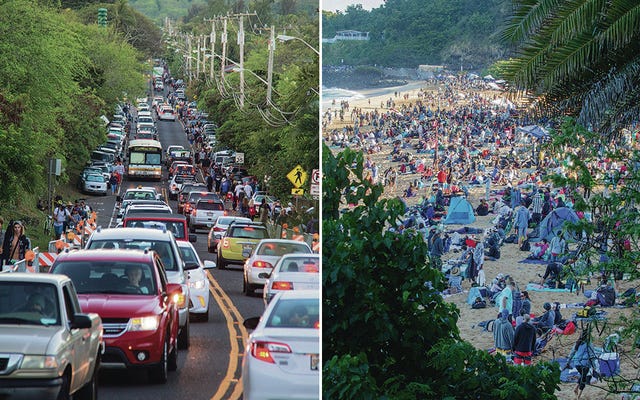

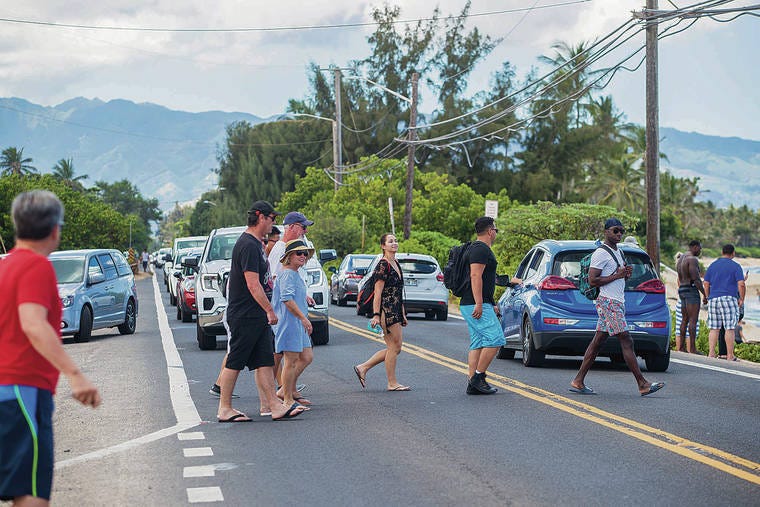
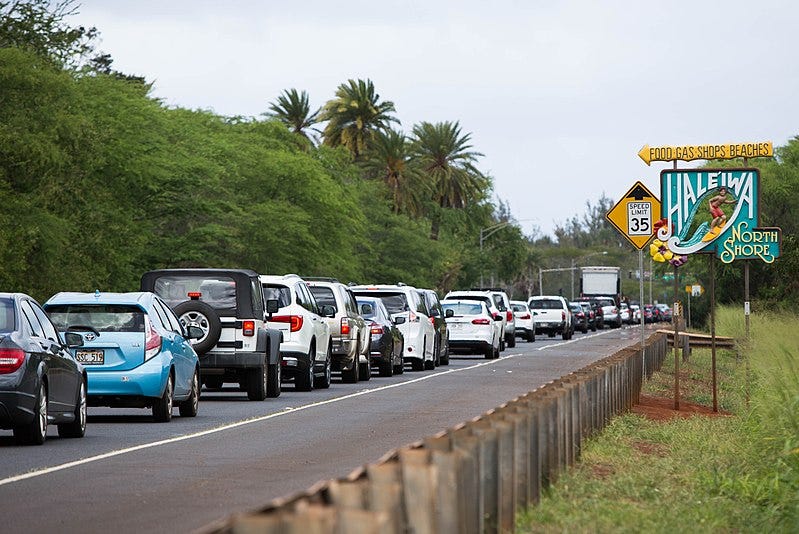

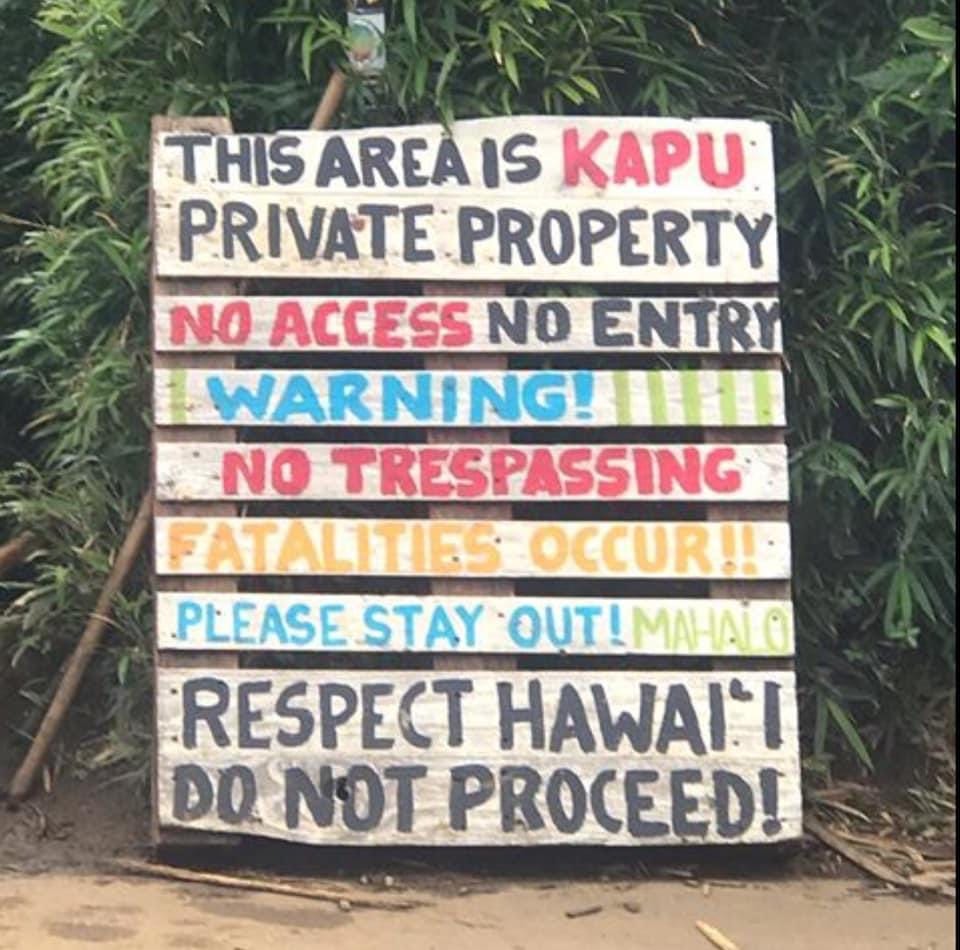





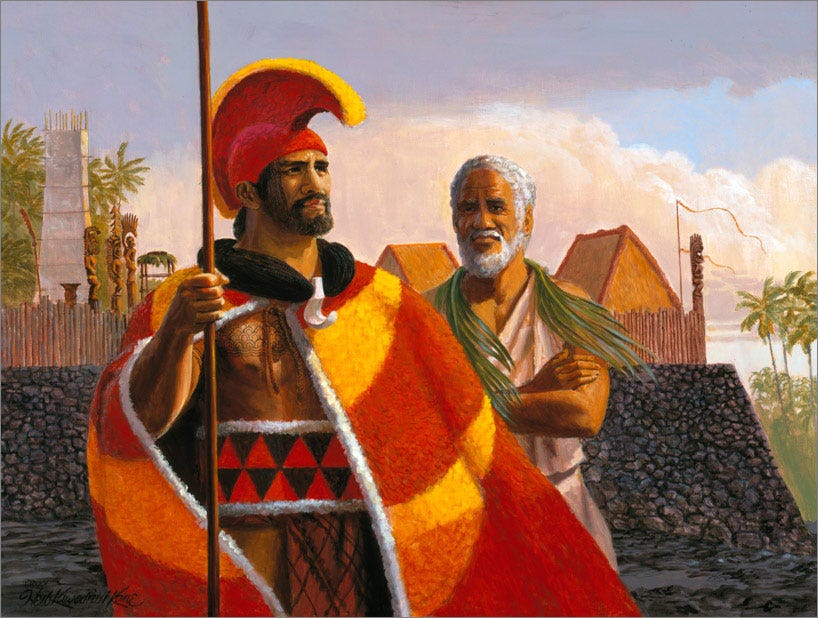



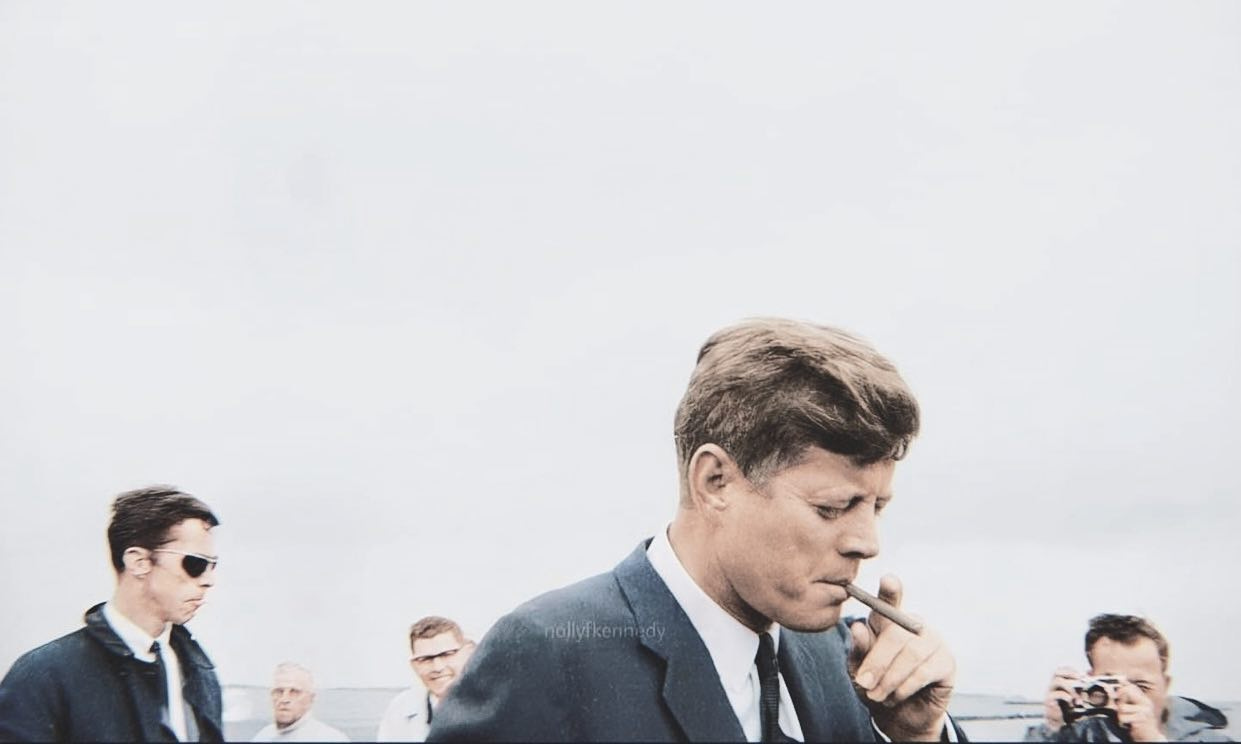

One minor, yet noteworthy, correction: My exact verbiage was "With all due love and respect, aren't you just a haole from Massachusetts after all?" That's a question. Much different than the "You're just a ...." misquoted here. Clearly you have answered said question - and then some. Keep up the great work. Utterly fascinating content, despite our diverging views around derogatorily slandering others, tourists or otherwise.
I have it on good authority that even Hawaiians can be haole. As the author properly illustrated haole is a mindset as much as a skin color. I kind of see it as a lack of aloha, or a lack of living pono. I’m from SoCal. My kids are from (born) in Hawaii. I have made it my duty to teach them about aloha, teach them respect for Hawaii and the culture. While they are only not Hawaiian by blood, likewise they are only haole by skin color. It’s what’s inside (according to the Hawaiians that represent true aloha) that counts.
A thoughtful piece on a touchy subject. Bravo.